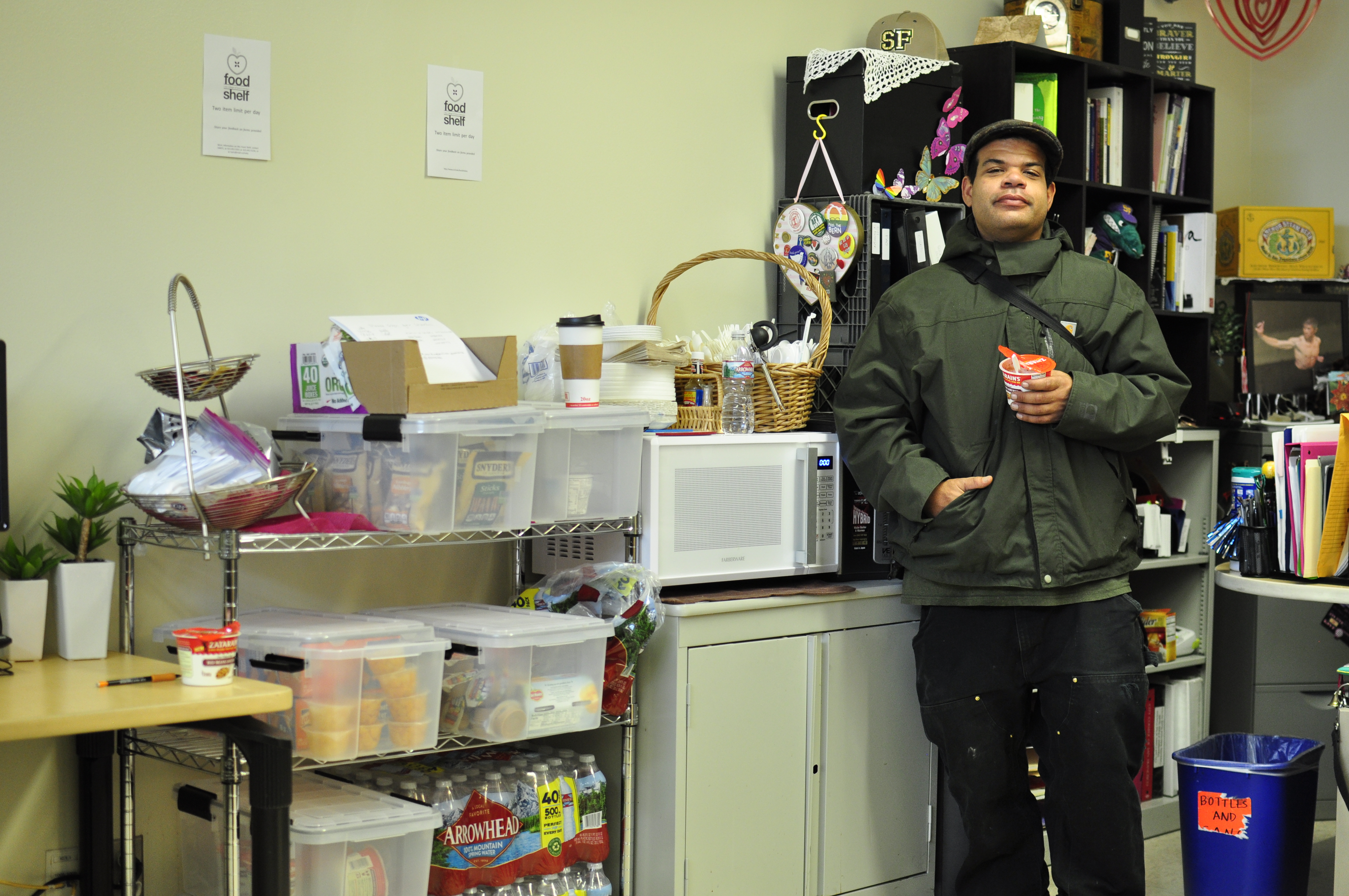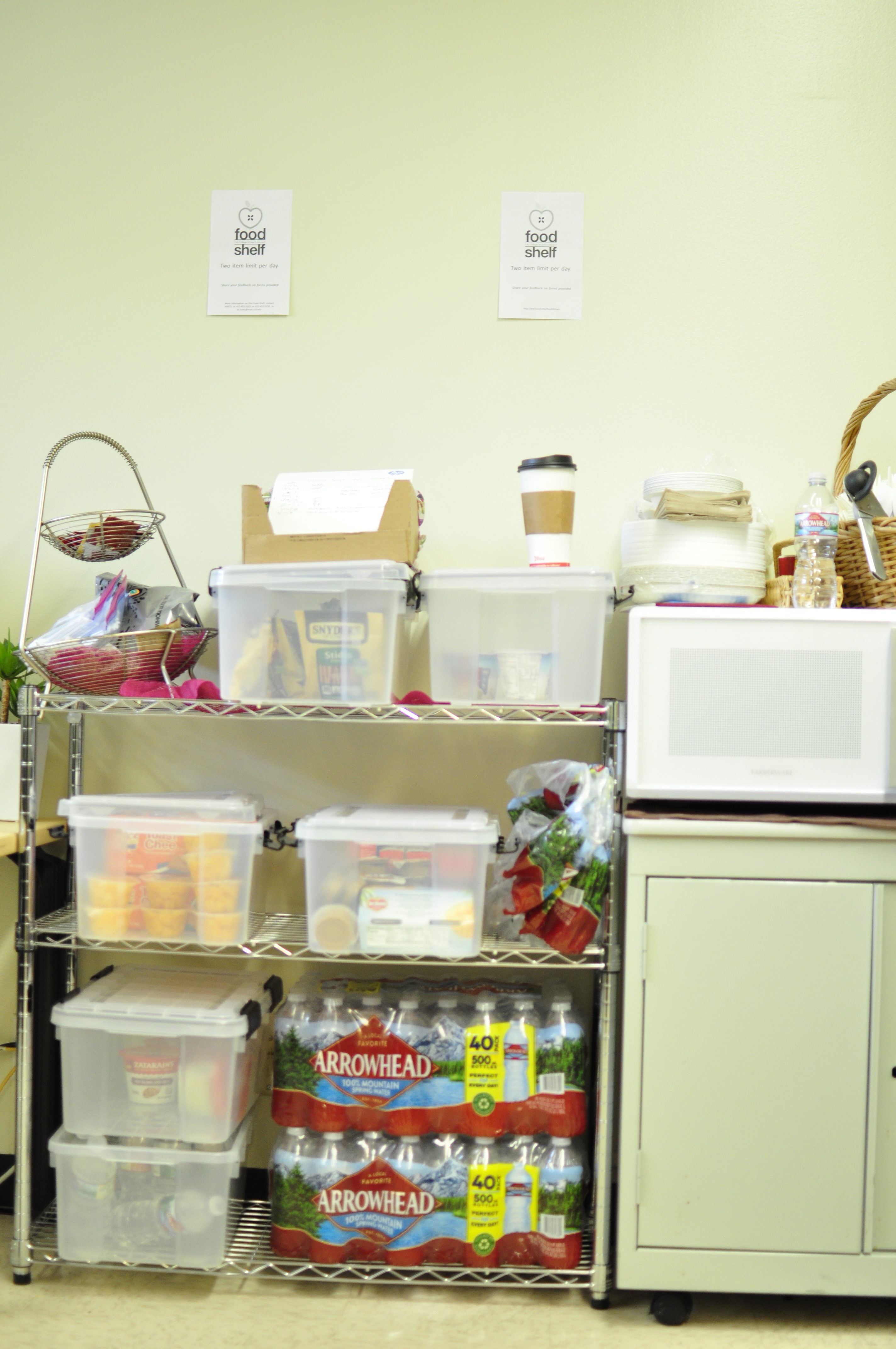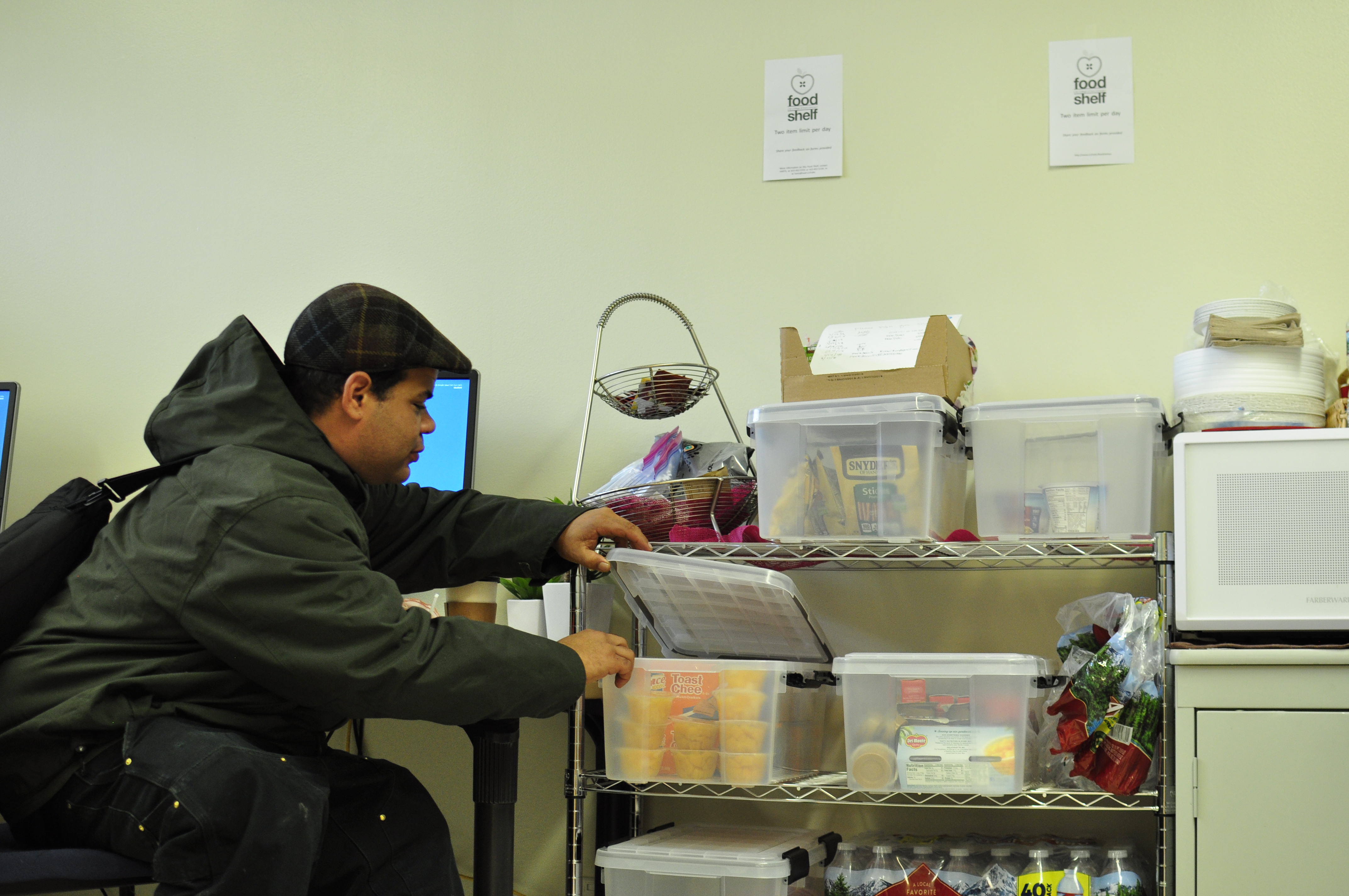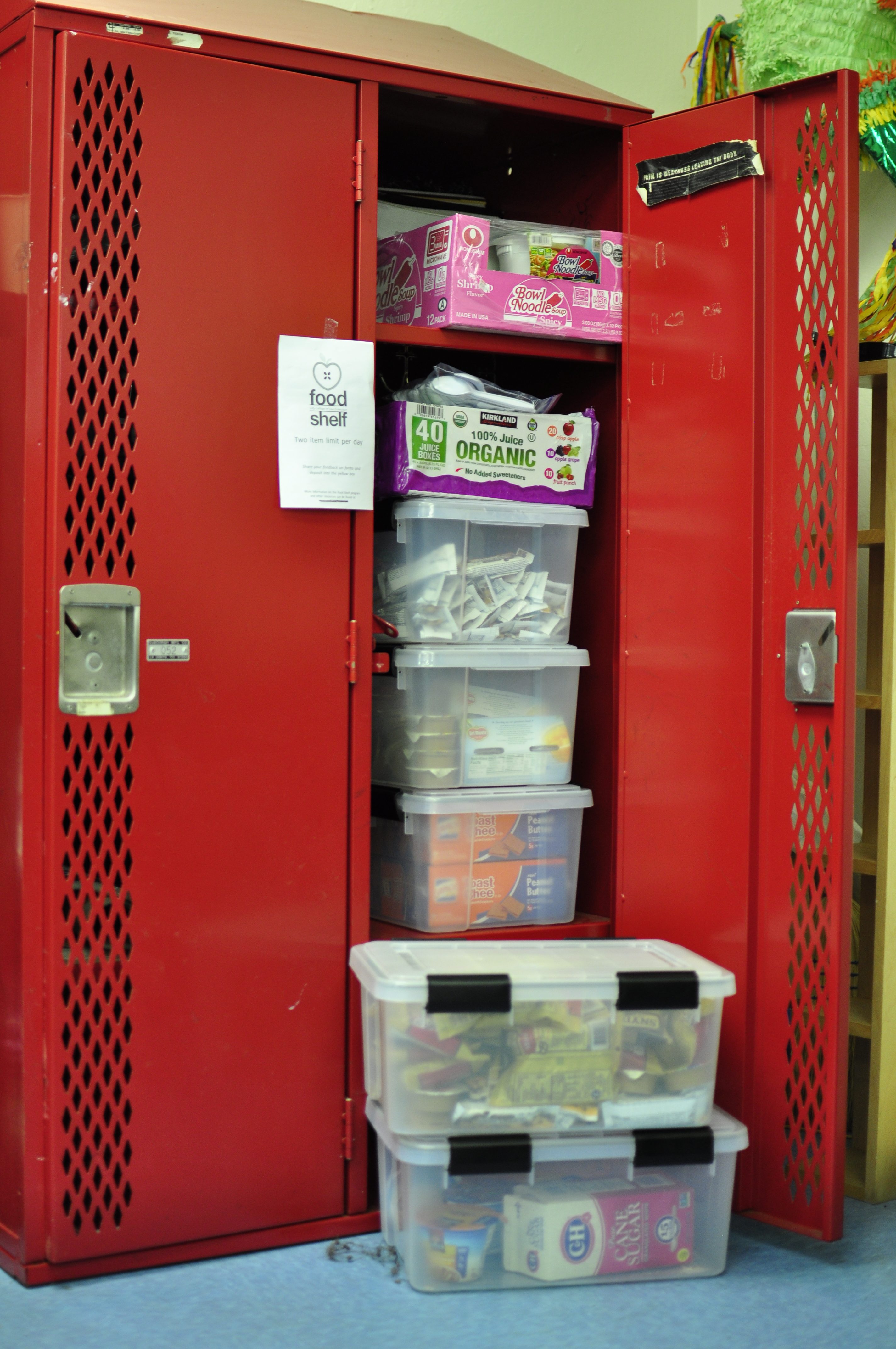CCSF struggles to handle food insecurity
By Leslie Hicks
City College launched a pilot program in November to make food available to the shockingly large number of hungry students who don’t always know where their next meal will come from.
Now open at six locations across Ocean Campus, the On-Demand Food Shelves provide ready-to-go healthy snacks.
The first location opened on Nov. 27 and was out of food within the week, said Patricia Baldwin, a member of the City College Food Pantry Work Group. “The need overwhelmed the supply,” she said.
The work group aims to tackle the prevalent issue of food insecurity by creating programs that will provide food to hungry students on campus. Long term, they hope to partner with the SF-Marin Food Bank to create a once-a-week pop-up food pantry.
Pop-up pantries would function similar to farmers markets, providing a variety of foods for low-income and food-insecure students. Unlike on-demand shelves, a pop-up pantry would provide access to fresh fruits and vegetables.
Asked why City College has not been on the forefront of officially tackling student hunger, Baldwin said, “People have tried, but the efforts so far have been quashed or unsuccessful.”
Academic performance is directly tied to food security, yet the problem of student hunger has been a dirty little secret on college campuses for years. According to a 2015 nationwide study conducted by the Urban Institute, 11 percent of households with a student in a four-year college suffered from food insecurity.
While the numbers are alarming, the problem of student hunger at City College is much worse. As the cost of living has skyrocketed in the Bay Area, so has the number of students in need.
English Professor Jen Levinson conducted a survey of 1,088 students in her department and found that 41 percent of students suffer from moderate food insecurity, and 20 percent are extremely food insecure.
It comes as no surprise to many faculty members that some of their students suffer from hunger. There are individual teachers and students who shoulder the personal and financial burden of providing food to hungry students.
Arnel Roca, a student at City College, shared his story of bringing extra food to class when he discovered his classmates were hungry and could not simply go to the cafeteria to buy food.
Levinson said she also had been providing food to a student in need, not wanting their class performance to stuffer due to lack of nutrition. That’s why she, along with Baldwin, spearheaded the work group.
“We wanted to create a program that would support the individuals already involved, already feeding students.” Levinson said.
Levinson and Baldwin initially collaborated with Becky Perelli, former director of Health Services at City College, on the plan for the pop-up pantry model. But they became frustrated with the bureaucratic process required by administration officials whose approval is required but whose attention is hard to get.
For a pop-up pantry program to launch, the group must first receive approval from Chancellor Mark Rocha, who would be responsible for facilitating a partnership with the SF-Marin Food Bank. According to Levinson and Baldwin, this has been the most challenging part.
“I feel like the work group and the administration probably want the same thing, but somehow the communication is as such that the administration doesn’t seem to know we exist, even though I feel like I’m shouting,” Baldwin said.
Frustrated but undeterred, the group came up with the On-Demand Food Shelves as a more immediate way to bring food to hungry students. They secured funds for the program with the help of Dean Andrew King.
The group is still working toward the long-term goal of facilitating a pop-up food pantry on campus, and have gained the support of several groups on campus.
“At a state level, a campus level, a grassroots level, a lot of interest is building around the issue of food insecurity on campus,” Baldwin said.




